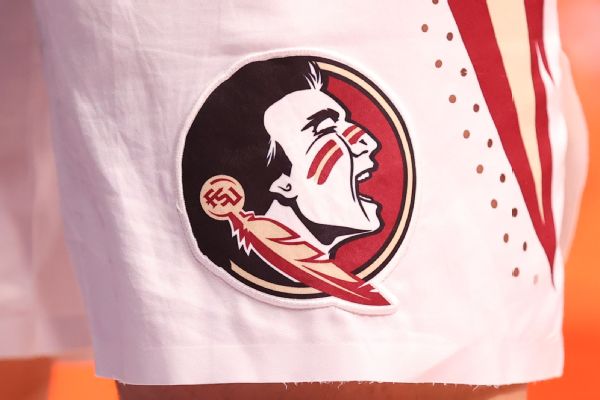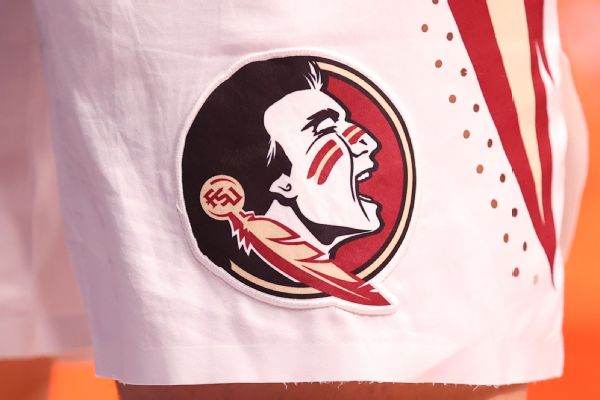
TALLAHASSEE, Fla. — Florida State President Richard McCullough told his board of trustees during a meeting Wednesday that the university would have to “very seriously” consider leaving the ACC unless there is a radical change to the conference’s revenue distribution model.
McCullough addressed the board to give an update on where Florida State stands after a year spent exploring options about what the future holds in the wake of conference realignment and big money television contracts in the Big Ten and SEC. The moves are in line to put ACC schools $30 million behind per year from a TV revenue distribution standpoint.
The ACC recently changed its revenue distribution model to reward success on the field in football and basketball. But Florida State has also pushed for changing the model to reward programs that generate higher television revenue and marketability, areas where FSU believes it has an advantage.
“Our goal would be to continue to stay in the ACC, but staying in the ACC under the current situation is hard for us to figure out how we remain competitive unless there were a major change in the revenue distribution within the conference,” McCullough said. “That has not happened. Those discussions are ongoing at all times.
“FSU helps to drive value and will drive value for any partner, but we have spent a year trying to understand how we might fix the issue. There are no easy fixes to this challenge, but a group of us have spent literally a year. We’ve explored every possible option that you can imagine. The issue at hand is what can we do to allow ourselves to be competitive in football and get what I think is the revenue we deserve?
“This continues to be a very difficult issue. There’s a lot going on in the world of conference realignment. My current assessment of the situation after very deep analysis is I believe FSU will have to at some point consider very seriously leaving the ACC unless there were a radical change to the revenue distribution.”
McCullough echoed those thoughts in a separate interview with ESPN before the meeting began. “I’m not that optimistic that we’ll be able to stay,” he said in that interview.
“At some point, we’re going to have to do something,” McCullough said. “I’m not that optimistic that we’ll be able to stay. I just don’t know that. It could occur, but something radically different is going to have to happen. All options remain on the table.”
The ACC ranks third in revenue behind the Big Ten and SEC, and those projections are not expected to change with a newly expanded Big 12. The conference also has a television contract with ESPN that runs through 2036.
To get out of the league, Florida State would have to pay a $120 million exit fee and go to court to challenge the existing grant of rights, which gives the ACC media rights for its member schools through the length of the contract.
Florida State, along with other schools in the ACC, has studied the contract language in the grant of rights for more a year.
In an interview with ESPN earlier Wednesday, Florida State athletic director Michael Alford said, “We have a great understanding of what opportunities there are in that document. How that document could hold us back, but also what the opportunities are. So this is going to be a discussion. We’ll keep getting legal advice. Our legal team has a good understanding of that document.”
When asked for a timeline on when Florida State might act, McCullough told ESPN that falling $30 million behind annually is “not a sustainable position for us. The timing for us to do something radical is not known, but it’s not 2036.”
The ACC declined to comment Wednesday on Florida State. Just last week during the ACC Football Kickoff event, league commissioner Jim Phillips said, “I’m well aware of the narrative and stories surrounding the ACC and our members as well as the frustrations of some of our schools on our financials. But these are not new. The bottom line is our conference is strong and I’m extremely bullish about our future together.”
Much could be riding on the success of the Florida State football team, which won 10 games in 2022 for the first time in six years. The Seminoles last won a national championship in 2013, but because its brand, marketability and ratings remain high within the conference, the school believes it deserves to be paid on par with those in the SEC and Big Ten.
After McCullough made his comments to the board, the trustees agreed that Florida State had to act before the current ACC contract with ESPN expires. But there was no discussion about what the school would have to do to act.
Former Florida State quarterback Drew Weatherford, who serves on the board, said, “Do we want to play games moving forward, or do we want to compete? I’ve thought about this a lot as an ex-player, as now board of trustee member, and the simple fact is the cost of playing at the highest level is outpacing the ACC’s ability to compete on a regular basis.”
Trustee Justin Roth put it this way: “Staying in this conference for the next 13 years and trying to wait for that perfect alignment of the stars is the equivalent of a death by 1,000 cuts and each cut is a $30 million cut over the next 13 years.”
Board chair Peter Collins, who told Warchant.com on Tuesday the grant of rights “will not be the document that keeps us from taking action,” told trustees they would hear again from Alford and McCullough soon on a plan moving forward.
“We’ve got to fight for ourselves,” Collins told the board. “When the gap gets that big, it’s insurmountable.”











